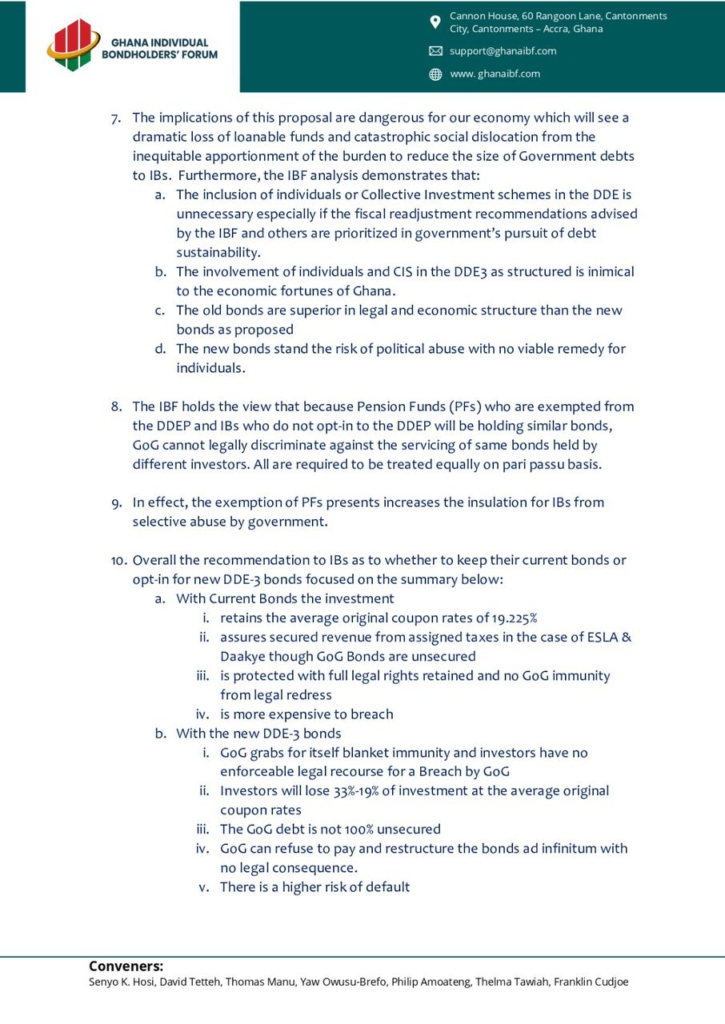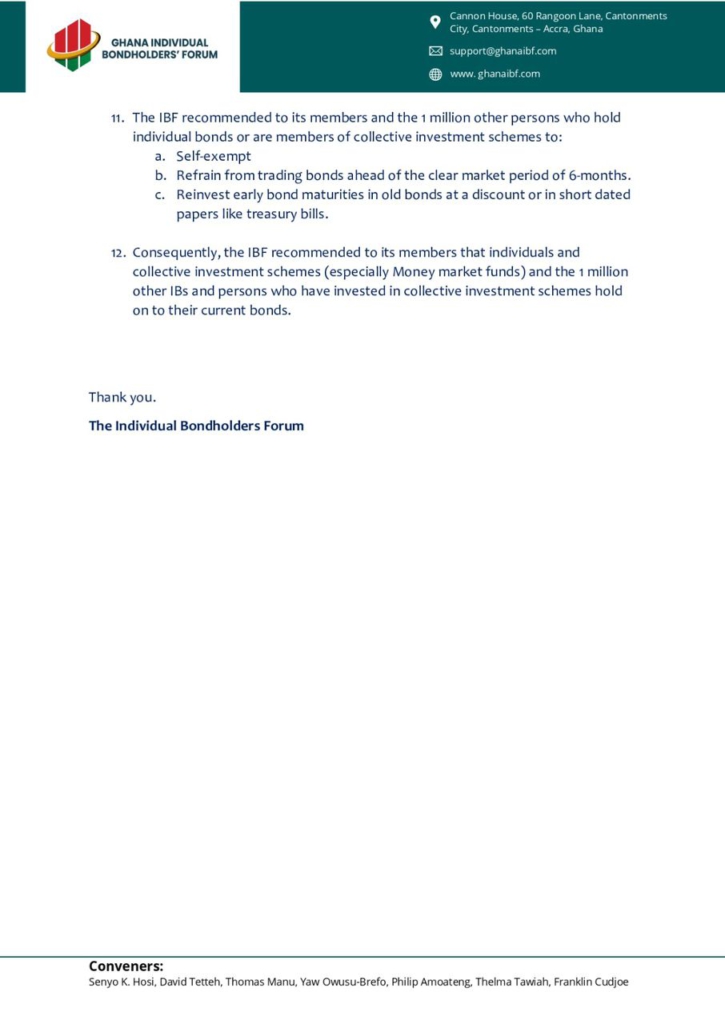The Individual Bondholders Forum is urging its members and members of collective investment schemes to self-exempt, refrain from trading bonds ahead of their clear-market period of six months and reinvest early bond maturities in old bonds at a discount in short-dated papers like treasury bills.
“Consequently, the IBF recommended to its members that individuals and collective investment schemes (especially money market funds) and the one million other IBs and persons who have invested in collective investment schemes hold on to their current bonds”, it said in a statement.
On February 5, 2023, the Government of Ghana issued its Ghana Domestic Debt Exchange – 2nd Amended and Restated Exchange Memorandum to holders of what it termed as Eligible Bonds.
They included CIS Holders or Individual Holders (IBs) below the age of 59 years old as of January 31, 2023 (Category A), Individual Holders aged 59 years or older as of January 31, 2023 (Category B) and other Eligible Holders (General Category).
Since then, the government has extended the expiry date of its Offer to Treat from February 07 to February 10, 2023.
The IBF said its technical committee reviewed the Ghana DDE – 2nd Amended and Restated Exchange Memorandum and its implication for individual bondholders and collective schemes.
Since the analysis was made on the entire eligible bonds portfolio based on a Weighted Average Coupon Rate of 19.225%, the IBF said the impact may vary for each unique individual portfolio.
That notwithstanding, the evaluation estimated the loss of value for the various categories of IBs as Category A – 33%, Category B – 18.7% and Category C – 45.4%.
“The estimated losses are compounded by the lower legal protections afforded holders of the new bonds key among which is the blanket immunity from execution and attachment of Diplomatic or Military assets, assets located in Ghana and dedicated to public and government use which Government gains in addition to assets under PRMA ACT815”.
It warned that the implications of this proposal are dangerous for the Ghanaian economy which will see a dramatic loss of loanable funds and catastrophic social dislocation from the inequitable apportionment of the burden to reduce the size of Government debts to IBs.
Find below the statement:


DISCLAIMER: The Views, Comments, Opinions, Contributions and Statements made by Readers and Contributors on this platform do not necessarily represent the views or policy of Multimedia Group Limited.









![Business tycoon in Novrongo to bury late father in a car [Video]](https://ghananewss.com/storage/2023/05/business-tycoon-100x75.jpeg)







